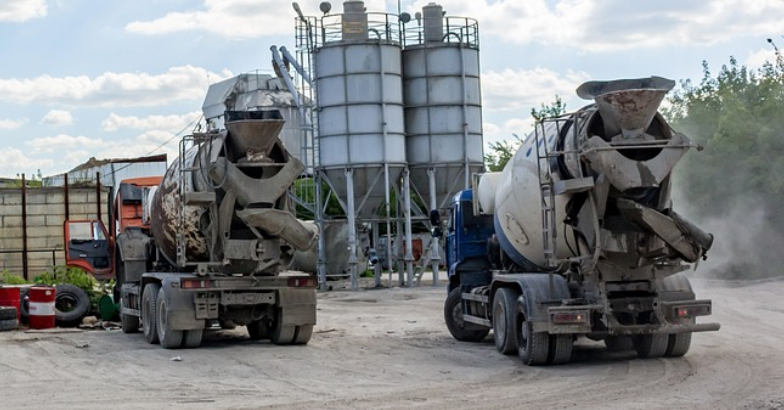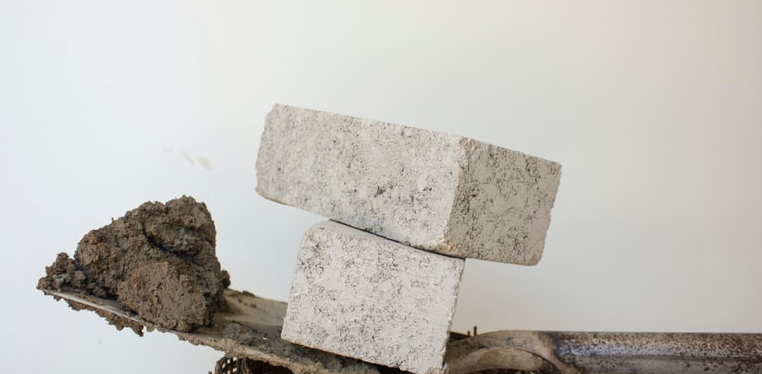by Fred Fuld III
The cement industry is a major contributor to the global economy, with a market size of over $326 billion. The industry is expected to grow at a CAGR of 5.1% from 2022 to 2029, driven by demand from infrastructure projects and urbanization.
Infrastructure projects, such as roads, bridges, and dams, are major consumers of cement. As developing countries invest in their infrastructure, the demand for cement is expected to grow. In addition, urbanization is also driving the demand for cement. As more people move to cities, there is a need for more housing and commercial buildings. Cement is a key ingredient in these structures.
The growth of the cement industry is not without its challenges. One challenge is the environmental impact of cement production. Cement manufacturing is a major source of carbon dioxide emissions. The industry is working to reduce its environmental impact, but this is a challenge.
Another challenge facing the cement industry is the increasing competition from emerging markets. China is the world’s largest producer of cement, but its growth is slowing. Other countries, such as India and Vietnam, are seeing rapid growth in their cement industries. This competition is putting pressure on prices and margins in the global cement market.
Despite these challenges, the cement industry is expected to continue to grow in the coming years. The demand for infrastructure and urbanization will continue to drive growth. The industry is also working to reduce its environmental impact, which will help to sustain its growth.
Here are some additional details about the factors driving growth in the cement industry:
- Infrastructure projects: Governments around the world are investing heavily in infrastructure projects, such as roads, bridges, and dams. This is creating a significant demand for cement.
- Urbanization: The world’s population is becoming increasingly urbanized. This is leading to a need for more housing and commercial buildings, which also require cement.
- Economic growth: In many developing countries, economic growth is leading to an increase in disposable income. This is creating a demand for new homes and other structures, which also requires cement.
- Increasing demand for sustainable construction materials: There is a growing demand for sustainable construction materials, such as cement made from recycled materials. This is creating new opportunities for the cement industry.
Vulcan Materials Company (VMC), which is traded on the New York Stock Exchange, is a producer of construction aggregates, primarily crushed stone, sand and gravel, and a major producer of aggregates-based construction materials including asphalt and ready-mixed concrete. The company’s products are used in nearly all forms of construction, including roads, bridges, buildings, and airports.
Vulcan Materials is the largest producer of construction aggregates in the United States, with operations in 29 states. The company also has operations in Canada and Mexico. Vulcan Materials is headquartered in Birmingham, Alabama.
The company’s stock is traded on the New York Stock Exchange (NYSE) under the ticker symbol “VMC.”
Vulcan Materials is a profitable company with a strong financial position. The company has a long history of growth and is well-positioned for future growth.
Here are some of the company’s strengths:
- Strong market position: Vulcan Materials is the largest producer of construction aggregates in the United States. This gives the company a significant advantage in terms of market share and pricing power.
- Diversified product portfolio: Vulcan Materials produces a wide range of construction materials, which helps to reduce its reliance on any one product or market.
- Strong financial position: Vulcan Materials has a strong balance sheet and generates a lot of cash flow. This gives the company the financial resources to invest in growth and acquisitions.
Here are some of the company’s challenges:
- Cyclical industry: The construction industry is cyclical, which means that demand for Vulcan Materials’ products can fluctuate.
- Environmental regulations: The construction industry is heavily regulated, which can increase costs and delay projects.
- Competition: Vulcan Materials faces competition from other producers of construction aggregates, as well as from companies that produce alternative construction materials.
Overall, Vulcan Materials is a strong company with a bright future. The company has a dominant market position, a diversified product portfolio, and a strong financial position. However, the company faces some challenges, such as the cyclical nature of the construction industry and the increasing regulatory burden.
The $29,5 billion market capitalization company has a trailing price to earnings ratio of 48 and a forward P/E ratio of 29. Quarterly earnings growth year-over-year were 31% on a revenue growth of 7%. Earnings per share growth for next year is expected to be 19.3%. The stock pays a dividend of 0.76%.
Cemex (CX) is a global building materials company with headquarters in Monterrey, Mexico. It is one of the largest cement companies in the world, with operations in over 50 countries. Cemex produces a wide range of building materials, including cement, ready-mix concrete, aggregates, and asphalt.
Cemex’s products are used in a wide variety of construction projects, including roads, bridges, buildings, and infrastructure projects. The company’s customers include governments, contractors, and individual consumers.
Here are some of Cemex’s strengths:
- Strong market position: Cemex is one of the largest cement companies in the world, with operations in over 50 countries. This gives the company a significant advantage in terms of market share and pricing power.
- Diversified product portfolio: Cemex produces a wide range of building materials, which helps to reduce its reliance on any one product or market.
- Strong financial position: Cemex has a strong balance sheet and generates a lot of cash flow. This gives the company the financial resources to invest in growth and acquisitions.
- Global reach: Cemex has operations in over 50 countries, which gives the company a global presence and access to new markets.
Here are some of Cemex’s challenges:
- Cyclical industry: The construction industry is cyclical, which means that demand for Cemex’s products can fluctuate.
- Environmental regulations: The construction industry is heavily regulated, which can increase costs and delay projects.
- Competition: Cemex faces competition from other cement companies, as well as from companies that produce alternative building materials.
Overall, Cemex is a strong company with a bright future. The company has a dominant market position, a diversified product portfolio, and a strong financial position.
This $10.7 billion company trades at 18 times trailing earnings and 190 times forward earnings. Quarterly earnings growth year-over-year were 21% on a revenue growth of 8.4%. Earnings per share growth for next year is expected to be 18.9%. The company does not pay a dividend.
Eagle Materials Inc. (EXP) is a leading manufacturer of basic construction materials in the United States. The company produces cement, gypsum wallboard, recycled paperboard, and concrete and aggregates. Its products are used in residential, commercial, industrial, infrastructure, and energy applications.
Eagle Materials was founded in 1963 as a division of Centex Construction Company. The company became an independent public company in 2004. Eagle Materials is headquartered in Dallas, Texas, and has operations in 11 states.
Eagle Materials is a profitable company with a strong financial position. The company has a long history of growth and is well-positioned for future growth.
Here are some of the company’s strengths:
- Strong market position: Eagle Materials is a leading manufacturer of basic construction materials in the United States. This gives the company a significant advantage in terms of market share and pricing power.
- Diversified product portfolio: Eagle Materials produces a wide range of construction materials, which helps to reduce its reliance on any one product or market.
- Strong financial position: Eagle Materials has a strong balance sheet and generates a lot of cash flow. This gives the company the financial resources to invest in growth and acquisitions.
- Focus on innovation: Eagle Materials is constantly investing in new technologies and products. This helps the company to stay ahead of the competition and meet the needs of its customers.
Here are some of the company’s challenges:
- Cyclical industry: The construction industry is cyclical, which means that demand for Eagle Materials’ products can fluctuate.
- Environmental regulations: The construction industry is heavily regulated, which can increase costs and delay projects.
- Competition: Eagle Materials faces competition from other manufacturers of construction materials, as well as from companies that produce alternative building materials.
EXP has a trailing P/E of 15 and a forward P/E of 13. Earnings per share growth for next year is expected to be 36.2%. The company pays a dividend of 0.54%.
Overall, the cement industry is expected to continue to grow in the coming years. The demand for infrastructure and urbanization will continue to drive growth. Maybe one of these stocks could be the foundation for your portfolio.
Disclosure: Author did not own any of the above at the time the article was written.




